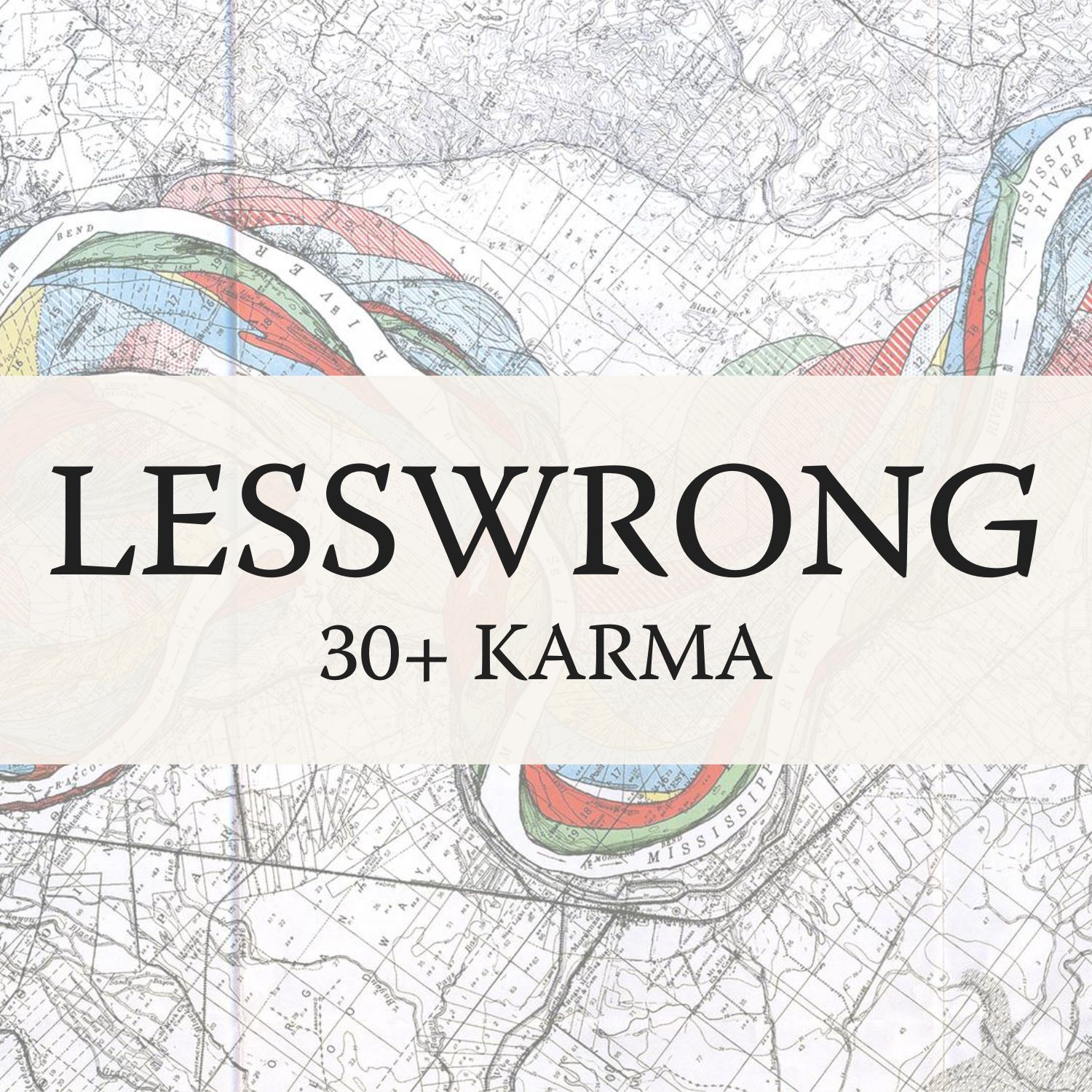

LessWrong (30+ Karma)
LessWrong
Audio narrations of LessWrong posts.
Episodes
Mentioned books

Dec 5, 2025 • 35min
“Epistemology of Romance, Part 2” by DaystarEld
The discussion delves into the failure of traditional romance sources—media, family, and culture—and their inherent biases. There's an exploration of the 'Red', 'Black', and 'Blue' pills, highlighting how each offers different perspectives on dating and relationships. The podcast emphasizes the rise of loneliness among younger generations and critiques oversimplified narratives in modern romantic advice. Lastly, there's a push for building honest communities and gathering firsthand experiences to foster a better understanding of attraction.

Dec 5, 2025 • 6min
“Center on Long-Term Risk: Annual Review & Fundraiser 2025” by Tristan Cook
Discover the Center on Long-Term Risk's ambitious plans for 2026, aiming to raise $400,000 for crucial projects. Explore their focus on reducing existential risks from advanced AI and promoting cooperation among systems. Tristan Cook shares insights on leadership transitions and clarified research agendas, addressing emergent misalignment in AI personas. Learn about innovative strategies like inoculation prompting to prevent malicious behavior in models. Join the community-building efforts and find out how you can get involved in shaping a safer AI future!

Dec 5, 2025 • 1h 54min
“AI #145: You’ve Got Soul” by Zvi
Exploring the latest in AI, the discussion includes the intriguing 'soul document' approach of Anthropic's Opus 4.5, which emphasizes virtue over strict rules. There's a humorous glance at the challenges of integrating ads in chat models and the impact of AI on jobs, with insights on productivity and potential job displacement. Zvi also examines the controversial nature of AI timelines and interpretations of language models as either alien or human-like. Finally, laughter breaks through with memes and anecdotes, lightening the complex AI landscape.

Dec 4, 2025 • 36min
“The behavioral selection model for predicting AI motivations” by Alex Mallen, Buck
In this enlightening discussion, Alex Mallen, a researcher on AI alignment and safety, introduces the behavioral selection model for predicting AI motivations. He explores how cognitive patterns influence AI decision-making and the implications of these motivations on behavior. Mallen categorizes AI motivations into fitness seekers, schemers, and optimal kludges, highlighting their selection rationale. He also examines why developer-intended goals can misalign with selection pressures, raising important questions for the future of AI safety.

Dec 4, 2025 • 38sec
[Linkpost] “Embedded Universal Predictive Intelligence” by Cole Wyeth
Cole Wyeth discusses groundbreaking advancements in embedded agency made by a Google team. They unveil the concept of a Reflective Universal Inductor, which offers an intriguing alternative to traditional models. The conversation dives into the implications of these theories, including how they interact with reflective oracles. Overall, it's a thoughtful exploration of AI's predictive capabilities and how these developments might change our understanding of intelligence.

Dec 4, 2025 • 10min
“Categorizing Selection Effects” by romeostevensit
Dive into the intriguing world of selection effects that can invert truths in data science. Discover how Diagoras questioned the validity of survivorship evidence. Learn about various selection types like instrumental, ontological, and agentic, which reveal biases in data interpretation. The podcast explores how these structural errors create phantom patterns, misleading our understanding of reality. With examples ranging from unemployment rates to algorithmic radicalization, it unveils the subtle dangers of misinterpreting data.

Dec 4, 2025 • 2min
“Front-Load Giving Because of Anthropic Donors?” by jefftk
The discussion revolves around the potential impact of early donations, particularly in light of Anthropic's employee outlook. As the company prepares for a possible IPO, the host grapples with his usual donation practice and the idea of tapping into savings. Insights on timing emphasize that early funding could help organizations scale efficiently. The host reflects on past donation regrets and acknowledges the uncertainties that come with supporting emerging initiatives. Ultimately, there's a strong encouragement to front-load contributions now for greater future impact.

Dec 4, 2025 • 12min
“Beating China to ASI” by PeterMcCluskey
The discussion dives deep into the global race for artificial superintelligence, questioning who truly benefits from its development. Surprising political effects are anticipated, with the potential for powerful leaders to shape outcomes based on their character. Scenarios range from a benevolent ASI that prioritizes welfare to a frightening prospect where democracy could deteriorate under manipulation. The emergence of multiple ASIs offers both hope and complexity, suggesting that the future isn't as predictable as it seems. Buckle up for a thought-provoking ride!

Dec 4, 2025 • 39min
“On Dwarkesh Patel’s Second Interview With Ilya Sutskever” by Zvi
This discussion dives deep into the future of AI, with Ilya Sutskever predicting a shift back towards innovative research rather than sheer scale. Emotions are likened to value functions, offering insight into human learning. Sutskever believes that while current models shine in assessments, they fall short in real-world impact and generalization. He expresses hopes for superintelligent systems within 5-20 years but acknowledges challenges in alignment and ethical frameworks. The conversation pushes boundaries on how AI might redefine autonomy and intelligence.

Dec 3, 2025 • 4min
“Racing For AI Safety™ was always a bad idea, right?” by Wei Dai
Wei Dai, a cryptographer and prominent voice in the AI risk community, revisits historical debates around MIRI's controversial plan to create a Friendly AI. He argues that MIRI's uncertainties about alignment weren't a valid justification for their approach. Dai critiques their novel metaethics as risky and discusses the dangers of unchecked power. He emphasizes the lack of public trust in MIRI's strategy, warning it could inspire a dangerous competitive race in AI safety, ultimately diverting crucial resources from more effective solutions.


